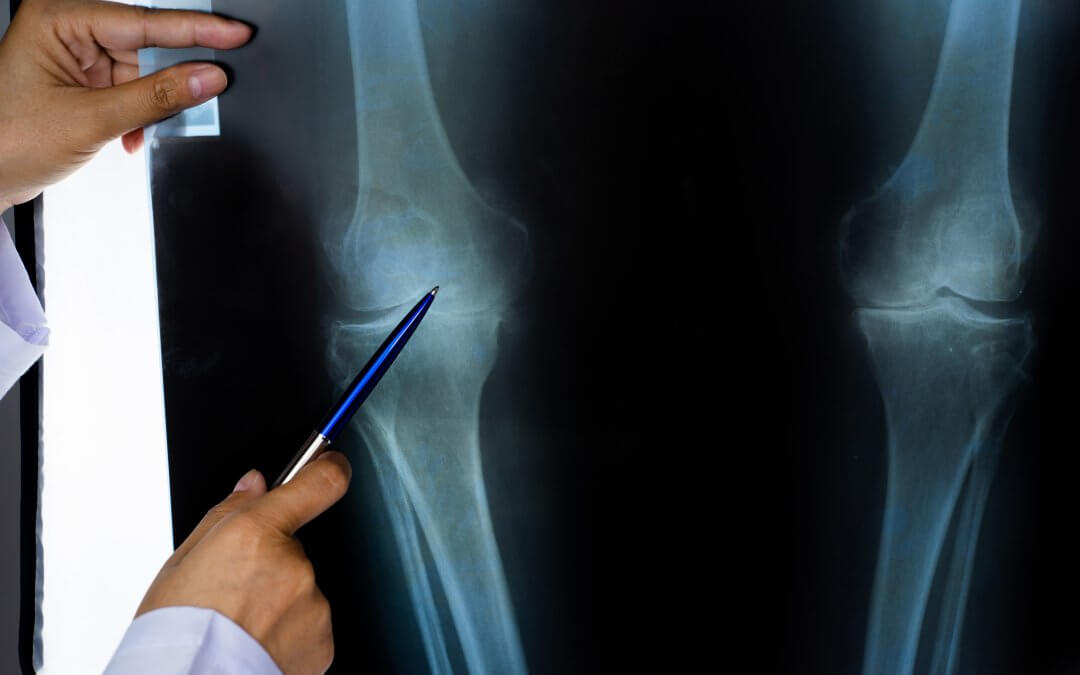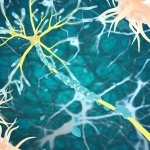The results from a Phase I/II clinical trial suggests a new stem cell-based therapy has the power to treat osteoarthritis (OA).
The trial, which was conducted by Australian biotechnology company Magellan Stem Cells, demonstrated that their ‘off-the-shelf’ stem cell therapy MAG200 significantly improved joint function and reduced pain for sufferers, with sustained benefits observed over longer periods.
It’s hoped that the new therapy will revolutionise OA treatment, helping to improve quality of life outcomes for millions of OA sufferers around the world. [1]
What is osteoarthritis?
Osteoarthritis is a condition that causes joints to become stiff and painful.
Normally, the everyday wear and tear that joints undergo is repaired by the body itself. For those who suffer from osteoarthritis, however, the protective cartilage on the ends of bones breaks down over time, causing pain, stiffness, and swelling.
Osteoarthritis most commonly affects the small joints in the hands, hips, knees, and neck. [2]
An estimated 10 million people in the UK alone have osteoarthritis, with the majority suffering from knee OA. [3]
A leading cause of disability, knee OA is associated with significant economic and healthcare burdens, often leading to total knee replacement surgery. A study by NICE in 2020 found that 100,000 knee replacements were carried out every year, with 89% of these being total knee replacements. [4]
It’s hoped that the new MAG200 stem cell therapy will not only improve outcomes for knee OA sufferers, but also alleviate some of the resource strain caused by currently limited treatment options.
What is the new MAG200 stem cell therapy and how does it work?
The MAG200 therapy involves the localised injection of mesenchymal stem cells (MSCs) derived from adipose tissue into the area of the knee.
MSCs have emerged in recent times as a promising approach to addressing the unmet clinical needs of OA, namely pain caused by inflammation and the absence of protective cartilage tissue.
Previous research has shown that MSCs not only have the ability to reduce proinflammatory cytokines, thereby suppressing the pain associated with knee OA, but also to secrete transforming growth factor (TGFβ1) which helps with local tissue repair. [5]
These abilities make mesenchymal stem cells ideal for application in the treatment of knee OA and, therefore, in the MAG200 therapy.
What were the findings of the trial?
40 patients participated in the double-blind randomised control trial, all of whom had a documented diagnosis of moderate knee OA.
A double blind trial is one in which neither the researchers, nor the participants, know who has been administered what until after the trial has finished. This is done to reduce the chance of biases.
The participants were split into four cohorts of 10, wherein 8 were given MAG200, and 2 were given a placebo.
Following the application of MAG200, participants who had experienced a clinically meaningful improvement in either the pain or functionality associated with their OA were invited to respond using a variety of rating scales at months 1,3,6,9, and 12. [6]
A subsequent statistical analysis of responses, in addition to analysis of MRI data to measure improvements in tissue repair, demonstrated substantial benefits of MAG200, including:
- Sustained pain improvement of 58% at 12 months of follow-up.
- Doubling of quality of life scores for patients who received the stem cell treatment.
- Potential to halt the progression of osteoarthritis, with improvements in cartilage volume observed in treated patients.
Long-term follow-up demonstrated that the improvements from a single injection of donor stem cells were maintained beyond four years, highlighting the therapy’s durability and efficacy. [7]
What are the next steps for the MAG200 therapy?
According to a press release, Magellan Stem Cells hopes that future research will show the reproducibility of their results and validate their findings, paving the way for the rollout of MAG200 in Australia, beyond clinical trials.
Considered an ‘off-the-shelf’ therapy, it’s hoped that MAG200 will also have a considerable impact in the treatment of knee and other forms of OA, alleviating significant socioeconomic burdens associated with current OA treatments in the process. [8]
What does this mean for cord blood banking?
Although the mesenchymal stem cells used for the MAG200 therapy were derived from adipose donor tissue, mesenchymal stem cells are also found in umbilical cord blood and cord tissue, and could theoretically be used in autologous OA treatments (treatments using a patient’s own stem cells).
In fact, a 2021 study published in Nature’s open-access Scientific Reports Journal showed that an implantation of umbilical cord blood derived mesenchymal stem cells was more effective in treating knee OA than a high tibial osteotomy, a surgical procedure to realign the knee. [9]
Another study from 2023 found that mesenchymal stem cells from umbilical cord blood could enhance cartilage regeneration and reduce inflammation for sufferers of OA and were stipulated as being better equipped to both proliferate and differentiate than other sources of stem cells. [10]
While the MAG200 therapy is an allogeneic therapy, using donor stem cells, there is research to suggest that autologous mesenchymal stem cell treatments for OA using a patient’s own stem cells display clinically significant improvements across numerous parameters. [11]
This is good news if you’re considering saving your baby’s stem cells as it means that access to future treatments for conditions like OA could depend on whether a patient has their own stem cells available for use or not.
Saving your baby’s own stem cells also eliminates the risk of rejection in treatment, as your baby will always be a perfect match for their own stem cells.
To find out more about how cord blood banking could safeguard the health of your baby, sign up using the form below for a free Welcome Pack.
References
[1] Julien Freitag, et al., Safety and efficacy of an allogeneic adipose-derived mesenchymal stem cell preparation in the treatment of knee osteoarthritis: A Phase I/IIa randomised controlled trial, Osteoarthritis and Cartilage Open, Volume 6, Issue 3, 2024, 100500, ISSN 2665-9131, https://doi.org/10.1016/j.ocarto.2024.100500. (https://www.sciencedirect.com/science/article/pii/S2665913124000670)
[2] (2023, March 20). Overview: Osteoarthritis. NHS. https://www.nhs.uk/conditions/osteoarthritis/
[6] Julien Freitag, et al., Safety and efficacy of an allogeneic adipose-derived mesenchymal stem cell preparation in the treatment of knee osteoarthritis: A Phase I/IIa randomised controlled trial, Osteoarthritis and Cartilage Open, Volume 6, Issue 3, 2024, 100500, ISSN 2665-9131, https://doi.org/10.1016/j.ocarto.2024.100500. (https://www.sciencedirect.com/science/article/pii/S2665913124000670)
[9] Jung, SH., Nam, BJ., Choi, CH. et al. Allogeneic umbilical cord blood-derived mesenchymal stem cell implantation versus microdrilling combined with high tibial osteotomy for cartilage regeneration. Sci Rep 14, 3333 (2024). https://doi.org/10.1038/s41598-024-53598-9
FIND OUT MORE, REQUEST YOUR WELCOME PACK TODAY
All you need to know to make an informed decision.
Provide your contact details to request:
– Complete Welcome Pack and Parent’s Guide
– Information via email
– Contact from our specialist advisors








